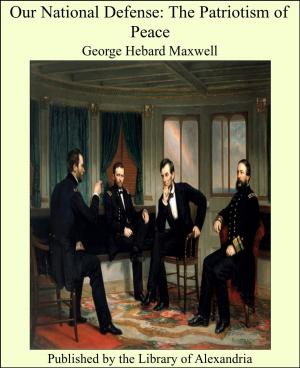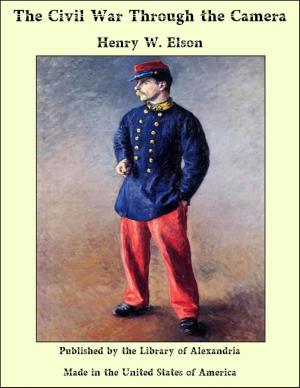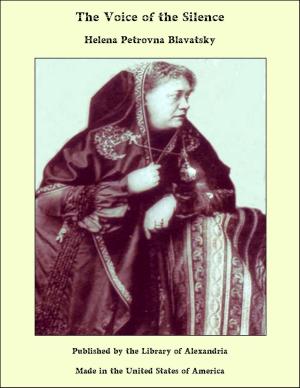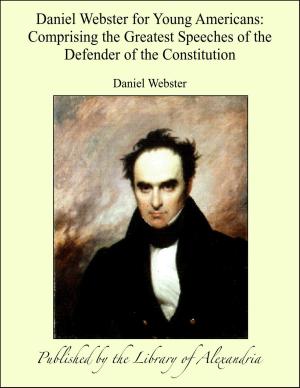American Adventures: A Second Trip 'Abroad at Home'
Nonfiction, Religion & Spirituality, New Age, History, Fiction & Literature| Author: | Julian Leonard Street | ISBN: | 9781465622419 |
| Publisher: | Library of Alexandria | Publication: | March 8, 2015 |
| Imprint: | Language: | English |
| Author: | Julian Leonard Street |
| ISBN: | 9781465622419 |
| Publisher: | Library of Alexandria |
| Publication: | March 8, 2015 |
| Imprint: | |
| Language: | English |
Had my companion and I never crossed the continent together, had we never gone "abroad at home," I might have curbed my impatience at the beginning of our second voyage. But from the time we returned from our first journey, after having spent some months in trying, as some one put it, to "discover America," I felt the gnawings of excited appetite. The vast sweep of the country continually suggested to me some great delectable repast: a banquet spread for a hundred million guests; and having discovered myself unable, in the time first allotted, to devour more than part of it—a strip across the table, as it were, stretching from New York on one side to San Francisco on the other—I have hungered impatiently for more. Indeed, to be quite honest, I should like to try to eat it all. Months before our actual departure for the South the day for leaving was appointed; days before we fixed upon our train; hours before I bought my ticket. And then, when my trunks had left the house, when my taxicab was ordered and my faithful battered suitcase stood packed to bulging in the hall, my companion, the Illustrator, telephoned to say that certain drawings he must finish before leaving were not done, that he would be unable to go with me that afternoon, as planned, but must wait until the midnight train. Had the first leap been a long one I should have waited for him, but the distance from New York to the other side of Mason and Dixon's Line is short, and I knew that he would join me on the threshold of the South next morning. Therefore I told him I would leave that afternoon as originally proposed, and gave him, in excuse, every reason I could think of, save the real one: namely, my impatience. I told him that I wished to make the initial trip by day to avoid the discomforts of the sleeping car, that I had engaged hotel accommodations for the night by wire, that friends were coming down to see me off. Nor were these arguments without truth. I believe in telling the truth. The truth is good enough for any one at any time—except, perhaps, when there is a point to be carried, and even then some vestige of it should, if convenient, be preserved. Thus, for example, it is quite true that I prefer the conversation of my fellow travelers, dull though it may be, to the stertorous sounds they make by night; so, too, if I had not telegraphed for rooms, it was merely because I had forgotten to—and that I remedied immediately; while as to the statement that friends were to see me off, that was absolutely and literally accurate. Friends had, indeed, signified their purpose to meet me at the station for last farewells, and had, furthermore, remarked upon the very slight show of enthusiasm with which I heard the news.
Had my companion and I never crossed the continent together, had we never gone "abroad at home," I might have curbed my impatience at the beginning of our second voyage. But from the time we returned from our first journey, after having spent some months in trying, as some one put it, to "discover America," I felt the gnawings of excited appetite. The vast sweep of the country continually suggested to me some great delectable repast: a banquet spread for a hundred million guests; and having discovered myself unable, in the time first allotted, to devour more than part of it—a strip across the table, as it were, stretching from New York on one side to San Francisco on the other—I have hungered impatiently for more. Indeed, to be quite honest, I should like to try to eat it all. Months before our actual departure for the South the day for leaving was appointed; days before we fixed upon our train; hours before I bought my ticket. And then, when my trunks had left the house, when my taxicab was ordered and my faithful battered suitcase stood packed to bulging in the hall, my companion, the Illustrator, telephoned to say that certain drawings he must finish before leaving were not done, that he would be unable to go with me that afternoon, as planned, but must wait until the midnight train. Had the first leap been a long one I should have waited for him, but the distance from New York to the other side of Mason and Dixon's Line is short, and I knew that he would join me on the threshold of the South next morning. Therefore I told him I would leave that afternoon as originally proposed, and gave him, in excuse, every reason I could think of, save the real one: namely, my impatience. I told him that I wished to make the initial trip by day to avoid the discomforts of the sleeping car, that I had engaged hotel accommodations for the night by wire, that friends were coming down to see me off. Nor were these arguments without truth. I believe in telling the truth. The truth is good enough for any one at any time—except, perhaps, when there is a point to be carried, and even then some vestige of it should, if convenient, be preserved. Thus, for example, it is quite true that I prefer the conversation of my fellow travelers, dull though it may be, to the stertorous sounds they make by night; so, too, if I had not telegraphed for rooms, it was merely because I had forgotten to—and that I remedied immediately; while as to the statement that friends were to see me off, that was absolutely and literally accurate. Friends had, indeed, signified their purpose to meet me at the station for last farewells, and had, furthermore, remarked upon the very slight show of enthusiasm with which I heard the news.















